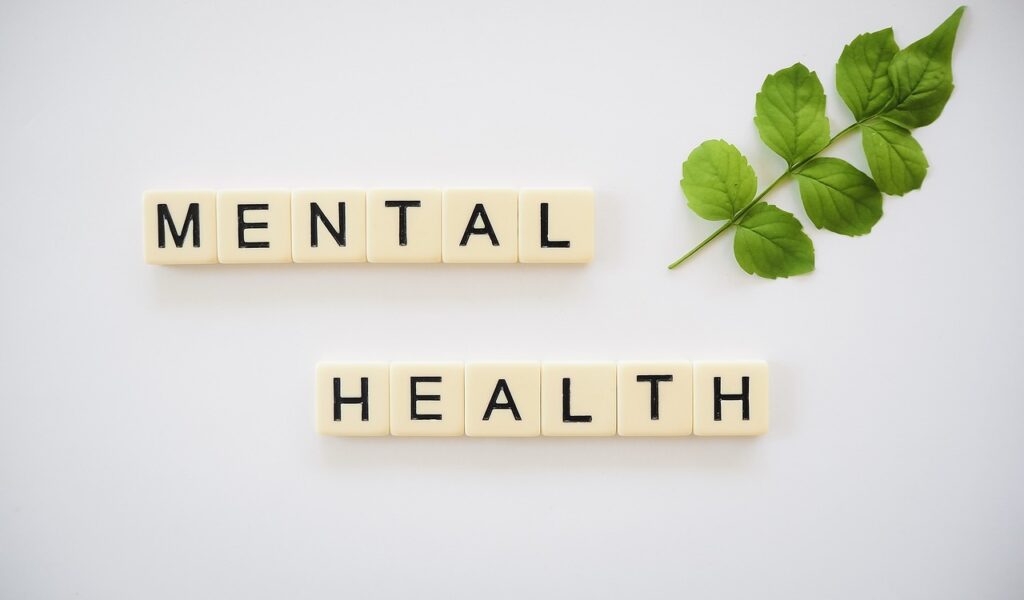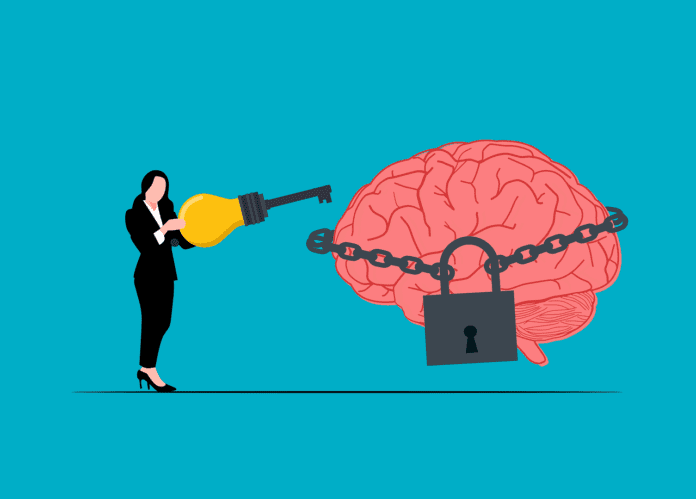Mental health awareness has become a vital global movement, evolving from a neglected topic to a pressing health priority. New approaches developed, however, stigma, lack of information, and financial resources are still the major challenges for the further development. Mental health awareness seeks to educate people about mental health conditions, dismantle stigma, and foster a supportive environment for those affected.
Healthy minds are critical to the essence of healthy persons and hence healthy communities. It impacts interpersonal relations, work performance, and indeed the well being of an individual as a whole. Necessary information increases the possibility of early diagnostics of possible problems concerning mental health and removes the stigma that can prevent people from seeking help. However, problems such as cultural misunderstandings, lack of stigmatisation of mental health, and financial issues increase the need for team efforts.
This blog delves into the importance of mental health awareness, its challenges, and actionable strategies to create a healthier, stigma-free society. In this way the education for all is important and removing barriers and stigma associated with mental health would make this as important as physical health. In this way, all clients will be encouraged together to improve the quality of mental and emotional health of people all over the world.
What Does Mental Health Awareness Mean?
Mental health awareness plays a vital role in educating people about the realities of mental health conditions, highlighting the importance of early intervention, and eliminating stigma. It helps to take help without feeling ashamed and gives the society instrumentalities to help a person who is suffering from any psychological disorders.
At its core, mental health awareness encompasses key components aimed at fostering understanding and inclusivity. First, it is about knowing things like depression, anxiety, bipolar disorder, and PTSD and ensuring people can identify signs that tell them when they require help. Second, it aims at combating prejudice, which makes it a process of destigmatisation or simply making mental health or issues with one’s mental health a topic that is quite common and usual or implementation of the same deconstructive prejudice typically eliminates prejudices based on myths that are normally present in society.

The third key factor that was identified is the need to take an advocacy role and make mental health care accessible by products at reasonable cost and available to every population, sensitive to the needs of communities that are in the need of mental heath services. The process of encouraging support, supports the notion of creating friendly environment whereby people could report heartaches and seek help.
By focusing on these components, mental health awareness promotes early intervention, reduces stigma, and builds a compassionate society where mental health is prioritised. Altogether these actions promote a better health and social equity of people in the globe.
The Importance of Mental Health Awareness
1.Reducing Stigma and Prejudice
Prejudice in mental illness results in embarrassment, loneliness and unaddressed illnesses which do not allow the affected people to fully heal. Mental health awareness campaigns play a crucial role in dispelling harmful myths, replacing fear with understanding. In this sense, any attempts at working towards eradicating stigma involve raising awareness, encouraging people share and talk about it, provide support and respect and include people who suffer from it as part of the community. Promoting mental health awareness is key to reducing stigma and supporting those affected.
2.Enhancing Early Detection and Treatment
In the case of mental health disorders, lacking the right professional help for a long time keeps the patients suffering longer. Mental health awareness initiatives empower individuals to recognise early symptoms and seek timely help. Through such efforts, the stigma discourages negative support, guarantee that people seek help before the conditions get worse. It appears that increasing community awareness is a critical area in fighting diseases and reducing stigma.
3.Supporting Physical Health
Health of an individual encompasses not only their mental system but also their physical system as well. Mental issues can also act as a precursor to several diseases inclusive of, cardiovascular diseases, diabetes, and others. It was noted that mental disorders cause poor coping that can negatively impact peoples overall health and likely contributes to physical health problems. Cognitive health is crucial in as much as it can lower one’s chances of getting chronic diseases that can alter his lifestyle.
4,Boosting Productivity
Workplaces that embrace mental health awareness experience improved employee satisfaction, reduced absenteeism, and enhanced productivity. When employers encourage mental health, organisational structures are shaped in a way that co-employees discover value and meaning. Promoting mental health awareness leads to better overall well-being, fostering a more engaged workforce. In this way, the organisation and the employees are gainers as performance increases and turnover reduces.

5.Strengthening Communities
A society that prioritises mental health awareness is more resilient, empathetic, and supportive. Promoting mental health awareness helps create communities where individuals understand and support each other. It forges communal bond because the empathy and the understanding generated effectively help the people to address the issues affecting the community. By encouraging mental health awareness, we build a stronger, more compassionate society.
Global Statistics on Mental Health
| Metric | Data |
|---|---|
| Percentage of people with mental disorders | 13% of the global population |
| Suicide rate | 700,000 annually |
| Economic cost of untreated mental health issues | $1 trillion/year globally |
| Treatment gap in low-income countries | 75% |
These figures highlight the urgent need for widespread mental health awareness and intervention.
Challenges in Mental Health Awareness
Despite progress, several barriers impede the effective promotion of mental health awareness:
1.Stigma and Discrimination
Culture puts barriers such as stigma and misunderstanding in mental illness, denying individuals an opportunity to seek help. Such barriers limit discussions and slow down the positive changes in the nation’s health. Mental health awareness plays a crucial role in dismantling these stigmas, encouraging understanding, and empowering individuals to access the support they need. By challenging these misconceptions, mental health awareness creates a more accepting and supportive environment.
2,Resource Constraints
The middle agers indicated that low income countries face challenges of inadequate funding and development of mental health systems. This disabling state means that effective access is denied, and so people do not get the care they require. Mental health awareness is essential in advocating for better funding, policies, and infrastructure to ensure everyone, regardless of their location or income, can access essential mental health services.
3.Lack of Education
Lack of knowledge about mental health usually leads to concealed and overlooked disease. That’s because, when people do not know, or are afraid of becoming stigmatized, they will not ask for help or report their problems. This results to pro-longed suffering and worsened condition. Developing mental health literacy and creating mental health-friendly culture is another fundamental to promoting the use appropriate care to improve mental health.
4.Inequality in Access
It is apparent that people who live in the countryside of different states experience multiple problems with regarding professional mental health services. Lack of funds together with inadequate doctors, and long distances pose a major challenge when one has to be treated. This leads to poorly managed mental health illnesses and, therefore, poor outcomes. Increasing mental health awareness and improving infrastructure in rural areas is crucial for ensuring everyone can access the care they need.
5.Digital Overload
While technology plays a crucial role in raising mental health awareness, excessive screen time can have negative effects on mental well-being. Leisure time spent on screen specifically using social media causes increased anxiety, depression, and loneliness as other effects of screen time. Interacting with the social media platforms should be rare with an equal ratio as one should take time to come out interacting with the physical world.
How to Promote Mental Health Awareness
1.Leveraging Social Media
Channels like Instagram, twitter and tiktok have become strong advocacy in spreading awareness on mental health in various and global communities. These platforms enable people and organisations to post and upload Education material, and People’s experiences, and resources in an endeavour to combat stigma surrounding Mental Health. With the help of extensive follow-age on different social sites, these platforms make people come forward and seek help in different social groups on mental health.
2.Hosting Community Events
Through conducting the series of the workshops, seminars, and mental health fairs educational impact is achieved by reaching the target population. Such occasions are in a position to help the society in the way it handles mental health issues and where everyone is free to come and make contributions or seek for some information. Successful and well-supported events like this prove to be a useful platform to increase knowledge around the issues with respect to mental health and provide necessary encouragement to those who may require professional assistance and contribute to the development of healthier endorsement.
3.Engaging Schools and Workplaces
The fact is that, schools should ensure the proper lessons about mental health to teach children about it at all levels. That makes people free to talk about their mental health issues. In workplaces, allowing employee assistants’ programmes and wellness days compensate the employees for the care they require to stay mentally stable. All these concepts are aimed at creating healthier improved working and living conditions.
4.Partnering with NGOs
Collaborations with non-profits play a significant role in extending the reach of mental health awareness resources and campaigns. These compendiums are mutually beneficial in the sense that they offer improved mental health support, educational and service provisions to communities. These partnerships strengthen efforts to reduce stigma, promote early intervention, and ensure mental health awareness reaches a wider audience, encouraging more people to seek help when needed.
5.Sharing Stories
Stakeholder storeys present the actual experience, which makes them a great aid to overcome prejudices and promote more tolerance. One of the positive effects that people get to share their experience about their mental health is that other people get to have a human aspect of it. These storeys combat stigma, erased the taboo, and raise awareness to destigmatize the lives of others, and as a result society becomes more empathetic and people in the process do not feel as alone.
Technology and Mental Health Awareness
The Role of Digital Tools
Get help mental health apps such as BetterHelp and Calm: giving people the tools with which to do therapy and meditation. Teletherapy, involving online consultations, ensures that a number of people who have no access to professional care in their local areas gain access. However, social media serves as a double-edged sword: while it raises mental health awareness, it can also spread misinformation, complicating public understanding and care for mental health.
Challenges with Technology
Privacy aspect is emerging as a key problem when it comes to sharing mental health data for the risk of user’s information getting exposed in online platforms. Likewise, depending on the apps for self-help, people limit themselves from getting proper professional assistance they need. Apps should be used as such accommodating and enhancing tools, although they should not be alternatives to face to face contacts with professional therapists or health care providers.
Mental Health Awareness Campaigns: Success Stories
1,Time to Change (UK)
It is with the help of such a campaign that the people saw the need to talk more on matters touching on mental health. Inasmuch as it eliminated wrong perceptions and attitudes to the problem, the intervention as a means of control enabled people to reduce embarrassment about the issue. That is why seeing health was encouraged by the means of helping out, thus, making it easier for the sufferers to accept their conditions and not feel stigmatised.
2.Bell Let’s Talk (Canada)
Focusing on digital outreach, this initiative raised millions for mental health programs, significantly boosting mental health awareness. Being able to reach a large population of the population, it disseminated information that was crucial, especially concerning ventures in mental health. The success of this campaign highlights the power of digital engagement in advancing mental health awareness and securing funds for essential programs.
3.World Mental Health Day
Celebrated on the 10th of October, World Mental Health Day aligns everyone in the world together in the fight for mental health awareness. This day fosters increased understanding, advocacy and celebration of mental health. As a reminder for people to practise non discrimination, easy access to mental health services, fight champion for mental health policies, to create a positive change globally.
The Impact of Stigma
Prejudice is perhaps one of the most potent challenges of promoting mental health. It manifests in three forms:
1.Social Stigma:
Strategies are often negatively attributed to a society’s stereotypical estimate of individuals with mental disorders. Such stereotyping may work as a catalyst to reinforced misunderstanding, discrimination, or even social exclusion in case of the person with mental health conditions. Ig/results hence cloud people’s understanding and stifle communication and information that could help a distressed person. Challenging of these stereotyping is important in order to foster appropriate support, acceptance, and adequate attention concerning psychological well being.
2.Self-Stigma:
Stigma affects people with mental health disorders in a way that internalises shame within them. It arises out of social shame and self blame resulting in feelings of low self worth and loneliness. This shame will hold back a person from getting the help he or she requires, thus the disorder will worsen. Combating this requires mental health awareness efforts to normalise seeking help and foster a culture of understanding and acceptance.
3.Structural Stigma:
Systemic inequalities in healthcare and workplace policies significantly impact mental health awareness and access to care. Inadequate resources, prejudice, prejudicial policies, and procedures result in many clients receiving little or no support. Addressing these issues is essential for fostering equitable mental health awareness, ensuring everyone, regardless of socioeconomic background, receives fair treatment and access to mental health services.
How to Combat Stigma
- Educate yourself and others.
- Be supportive to friends and relatives with appreciation.
- Campaign for change on policies of mental health.
Practical Steps for Better Mental Health
For Individuals
- Perform extensive exercising and exercise considerably Feel free to practise meditation and relaxation exercises.
- Take exercise for a specific part of each day.
- If parent or carer is overwhelmed, or feeling tearful, they should consider seeking advice from professionals.
For Communities
- Sponsor support groups for people with mental illness.
- Support diversity related to all aspects.
- Swapping of resources and helpline numbers.
For Governments
- CUT, COPY, PASTE: Public support for mental health.
- It is now time to carry out national awareness campaigns.
- As part of the general goal to maintain equitable access to mental health services,
FAQs About Mental Health Awareness
Q1. What are the first signs of mental health issues?
Symptoms of most psychological disorders are initial changes in mood, withdrawal from activities, difficulty concentrating and changes in sleep and eating habits. Such symptoms when detected on time are useful in getting the right help for the child.
Q2. How can I help someone struggling with mental health?
Offer compassion for the individual’s condition, pressure the patient into getting proper advice and also be tolerant. Promoting mental health awareness helps individuals feel understood and supported, fostering an environment where they can confidently seek assistance and work towards improved well-being.
Q3. Are online therapy services effective?
Indeed, research confirms that teletherapy is as efficient as traditional therapy for most disorders.
Q4. What is the best way to spread mental health awareness?
Promoting mental health awareness involves education, sharing personal experiences, and engaging in impactful campaigns. These initiatives remove the barriers, raise awareness, and promote talk about mental health. We disseminate knowledge and join the puzzle of supporting communities to recognise mental health issues and encourage people to seek proper advice.
Q5. Is mental health awareness only for those with disorders?
Mental health awareness benefits everyone by fostering understanding and empathy. It fills communication gaps, diminishes prejudice and promotes eradicable discussion on mental health issues. Thus, people will be more accepting to develop support base that will help seek assistance from in response to making the society healthier.
Transform Your Mental Health Journey Today!
Charge up your mind with this all-embracing programme on mental health and depression. Learn from professionals and get valuable resources and successful methods to cope with stress and have a healthy mind. This resource aligns with our blog’s mission to promote mental health awareness. Take the first step towards a healthy mind with us today.
Conclusion
Mental health awareness is a global imperative. Through combating stigma, increasing availability and promoting understanding and awareness, the culture of the population’s mental health will be on a par with the physical state. Every person has something they can do for those who struggle with mental health – from being an ally to a friend, to lobbying for changes, or talking to people.
Hear our voices, stand together and make mental health a priority for every person, everywhere.


